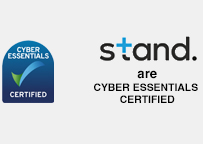Engagement and communications programme support for the North East and North Cumbria COVID-19 Vaccine Programme
The UK was one of the first countries to authorise a COVID-19 vaccine and provide protection to the full adult population in what has been the fastest and most complex vaccination programme in NHS history.
To do this, the NHS regulators, NHS England and Improvement (NHSEI), appointed a lead provider organisation from each Integrated Care System (ICS) regions in England.
For the North East and North Cumbria, Newcastle upon Tyne Hospitals, the region’s largest NHS foundation trust, were appointed.
Lead providers act as the coordinating and leadership organisation to support all parts of the region’s NHS and key partners in local authorities to work together to deliver a successful vaccination programme.
Stand were asked to support the programme and provide strategic communication and involvement advice and operational support to the Vaccination Programme leadership team as part of the coordinated vaccine response for the North East and North Cumbria.
The programme coordinated operations and rollout with multiple different vaccination providers, for example, Primary Care Networks (PCNs), community pharmacies and hospital hubs. The programme itself set up seven large vaccination centres.
The programme’s mission was to vaccinate the whole population of the North East and North Cumbria, as quickly as possible, in line with national policy.
Stand was appointed in November 2020 to provide strategic and operational support for communications and involvement in the run-up to the first vaccine being administered on the 7 December 2020.
Our Director, Caroline Latta, became part of the Vaccination Programme leadership team offering strategic advice and guidance and, with the support of associate Gail Cobb and the Stand team, translating it into operational communication and engagement plans. From the outset, the communications and involvement strategy was to recognise the importance of local leadership and relationships, and the role of the programme was to be a single source of information and clarity, working at scale to enable every partner to play their part.
Stand supported the programme through local partners in opening of 13 hospital hubs, 67 community pharmacy vaccine hubs, 67 primary care networks and seven large vaccination centres. We worked closely with NHS organisations and local authorities, both public health and communications teams, to provide clear information to the public on who was able to be vaccinated, at which point and how to make an appointment.
We worked closely with the media and ensured strong relationships and balanced, factual coverage.
As the programme progressed, we adapted to the changing circumstances. We continued to provide support to the programme while creating resources that could be used both on social media and in real life (such as posters) to effectively communicate the changing rules. This was particularly important during the booster vaccine rollout. As eligibility rules changed frequently, clear messaging was crucial.
Professor Neil Watson, chief operating officer for the COVID-19 Vaccination Programme for the North East and North Cumbria, said:
“The support that Caroline, Gail and the Stand team have provided from the outset of the vaccination programme has been outstanding, both in terms of strategic engagement and reactive media support. The success of the programme in the North East and North Cumbria owes at least in part a huge amount to the commitment from Stand.”
Thanks to the amazing support from dozens of partners, the vaccine programme has been able to administer over (a/o 7/12/21) 5.4 million vaccine doses, across a wide range of geographies, demographics and ages. There is no part of the North East and North Cumbria that the vaccine programme has not operated in, and it is the continuing mission to ensure that every single person who wants to be vaccinated knows exactly how to do so.
Stand were appointed due in part to our extensive experience in strategic NHS communications and engagement, significant expertise in public health improvement, management of crisis and challenging situations, and our strong network of NHS and local authority contacts at a leadership level.


